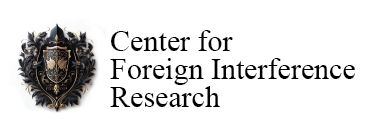New Zealand’s Security Threat Environment 2023
New Zealand Security Intelligence Service (NZSIS) has detected extensive interference activity targeting New Zealand’s diverse ethnic Chinese communities by groups and individuals linked to the intelligence arm of the People’s Republic of China (PRC).
August 11th, 2023
The New Zealand Security Intelligence Service (NZSIS) has published its first ever comprehensive assessment on the threats of violent extremism, foreign interference and espionage facing contemporary New Zealand.
The ‘Report of the Royal Commission of Inquiry into the terrorist attack on Christchurch masjidain on 15 March 2019’ called for the publication of an annual threatscape report, and this assessment fulfils that recommendation.
New Zealand’s Security Threat Environment 2023 is an analytical report on the nature of the threats we face as a country. It provides more detail of those threats and their origins than what has previously been reported at an unclassified level by the NZSIS.
NZSIS Director-General of Security Andrew Hampton says this is an upfront assessment of how New Zealand connects into the global security environment and how those with malicious intent take steps to undermine our democracy and security.
“In recent years, there has been a clear demand for more information about the factors likely to impact our collective safety and security. We hear this from across government, academia and civil society but also at a community level. Our report attempts to provide more clarity.
“Being more open about national security means that as a country we can develop a greater understanding and be better placed to manage risks.
The report outlines four key factors that influence New Zealand’s contemporary threat environment in relation to the main threats the NZSIS is charged with monitoring – violent extremism, foreign interference and espionage. It finds strategic competition, declining social trust, technological innovation and global economic instability are shaping our domestic threat environment.
“Competition between states is becoming more acute,” says Andrew Hampton. This environment is prompting some states to seek advantage through subversive and dishonest means such as espionage and foreign interference against New Zealand and New Zealand’s interests.
“NZSIS is very clear that those responsible for the foreign interference threat are the states themselves and the people who act on their behalf. The vast majority of people who whakapapa to those countries are not the threat.
“This is an important distinction. The report does not single out any community as a threat to our country, and to do so would be a misinterpretation of the analysis,” Andrew Hampton says.
The evolving nature of violent extremist ideologies is another theme in the assessment. “In the last year we have seen the emergence in New Zealand and around the world, of individuals who explore a range of extremist beliefs without aligning with any one in particular,” says Andrew Hampton. “The NZSIS has adopted the term ‘mixed, unstable and unclear’ ideologies to help it understand their unique characteristics.”
The report also identifies mis-and dis-information as a common factor affecting a range of threats.
“False and discredited information shapes pathways to violent extremism, but also creates opportunities for foreign interference,” Andrew Hampton says.
“Our analysis is not about predicting what people or governments will do, rather it is about understanding the factors that motivate or drive particular choices so we can better prepare ourselves for the security threats of the present and the future.”
Background
The role of the NZSIS is to keep New Zealand and New Zealanders safe and secure. NZSIS has a mandate to detect, investigate, assess and mitigate threats.
NZSIS is also responsible for providing a range of protective security services to other government agencies.
Excerpts from the Security Threat Environment report of 2023
Only a small number of states engage in interference against New Zealand, but some do so persistently and with the potential for significant harm.
Foreign interference is an act by a foreign state, often acting through a proxy, that is intended to influence, disrupt or subvert New Zealand’s national interests by deceptive, corruptive or coercive means. Such a definition is an important distinction from the normal diplomatic activity in which most states engage, which include efforts to lobby and influence as part of normal and open diplomatic relations.
There are other activities, including normal advocacy, dissent, and protest, which are carried out by individuals or organisations that may align with the interests of a foreign state, but are not deceptive, corruptive, coercive, or credibly linked to a foreign state. NZSIS does not consider such activities to be interference.
NZSIS has detected interference activity from a number of foreign states. Most notable is the continued targeting of New Zealand’s diverse ethnic Chinese communities. NZSIS sees these activities carried out by groups and individuals linked to the intelligence arm of the People’s Republic of China (PRC).
NZSIS has also observed that public and official awareness of foreign interference matters and strong policy responses, make it more difficult for states to conduct interference activities in New Zealand.
Deliberate protective efforts to guard against the threat since 2016 have probably helped make interference more difficult, but will also be driving changes to how states carry out political and societal interference. NZSIS categorises interference into two categories, political and societal, in order to describe the objectives and victims of interference.
Political Interference
Political interference is an act by a state intended to influence, disrupt or subvert another state’s governance or political systems by deceptive, corruptive or coercive means. In New Zealand this has largely taken the form of efforts to deceptively influence New Zealand policy-making. However, as the experience of other nations has shown, political interference has the potential to have wider impacts on the perceived integrity of elections and other democratic processes.
Societal Interference
Societal interference is probably the most common form of foreign interference in New Zealand.
Societal interference refers to acts by foreign states that are intended to influence, disrupt or subvert New Zealand’s communities and nongovernment sectors by deceptive, corruptive or coercive means. This includes New Zealand’s academic sector – encompassing institutions, employees and students. Increased public awareness of societal interference since 2016 has probably prompted some states to rethink how they engage with local communities in New Zealand. Given the ongoing interests of autocratic and repressive states in monitoring migrant and well established communities, such groups in New Zealand will remain at risk of societal interference.
Most foreign efforts will likely remain focused on monitoring individuals perceived as dissidents by the foreign state, promoting nationalistic sentiment, and preventing expatriate communities from developing views deemed subversive by the foreign state. Social media monitoring, media manipulation, deploying networks of motivated community contacts and covert intelligence operations are some of the tactics used to achieve their goals. Communities that are reliant on information sources from foreign states are also likely to be vulnerable to misinformation and disinformation.
A subset of interference is transnational repression, which refers to any effort of a foreign state intended to prevent acts of political dissent in migrant or expatriate populations. Transnational repression can include a range of acts, some of which have been seen in New Zealand. These include:
- Community surveillance, including the monitoring and infiltration of community groups, and the cooption of community figures;
- Harassment, threats and assault intended to intimidate individuals into curtailing activities considered threatening by the foreign state;
- Proxy punishment, including the harassment, confinement, or harm to relatives in the country of origin as retribution or coercion of an individual abroad; and
- Involuntary repatriation, in which individuals are coerced or compelled to return to their country of origin.
Internationally, NZSIS is aware that a number of foreign states undertake assassinations of dissidents and defectors deemed threats to those foreign governments. Some foreign states target individuals in their resident countries, as well as third party countries when those individuals travel.
NZSIS has identified the Islamic Republic of Iran undertaking societal interference, including monitoring and providing reporting on Iranian communities and dissident groups. Globally, Iran has sought to silence dissenting Iranian voices in response to perceived threats to the Islamic Republic. Such activity has historically been unlikely in New Zealand, although NZSIS continues to assess the threat in light of Iran’s increasingly aggressive behaviour internationally.
Impact of declining social trust on foreign interference
Foreign states may leverage significant social tensions to further their interests and shape narratives on a topic of interest or to sow disruption.
State-backed disinformation doesn’t need to be targeted specifically at the New Zealand context to have an effect. New Zealanders will still come across it.
Russia’s international disinformation campaigns have not targeted New Zealand specifically, but have had an impact on the views of some New Zealanders.
New Zealanders that rely heavily on discredited foreign information sources, such as the official or state-backed media of autocratic countries, are likely to be more vulnerable to the effects of disinformation. Often for those for whom English is a second language, there are few or no alternatives.
Impact of global economic instability on foreign interference and espionage
Foreign states may seek to exploit difficult economic times and the associated fear it creates in a similar way that some look to take advantage of societal divisions.
Economic difficulties at the national level could also reduce the resilience of New Zealand and our international partners to forms of foreign interference such as economic coercion.
Russia has sought to leverage this advantage in Europe to weaken support against its invasion of Ukraine. Economic uncertainty and the rising cost of living can make some people more vulnerable to states that seek to exploit them.
For example, individuals with access to sensitive information who find themselves in a difficult financial situation would highly likely be considered a vulnerable espionage target by foreign states.
Acknowledgements
This report was written and published by the New Zealand Security Intelligence Service on August 11, 2023. It has been republished here to raise greater awareness of foreign interference in Western democracies such as New Zealand.


